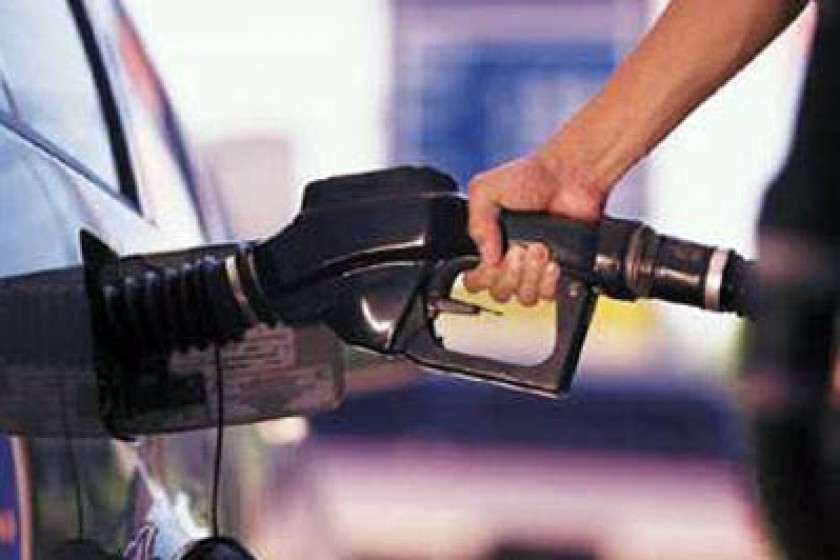
Getting What You Paid For at the Gas Pump?
The RA State Committee to Protect Economic Competition reports that a number of firms in the gasoline and diesel sector in the country are guilty of various violations.
This comes as a surprise to no one who lives in Armenia and drives a car.
During its study of the sector, the Committee decided to launch an administrative case against City Petrol Group, a firm that enjoys a majority share of the market. (40.8% of the diesel and 41.8% of the gasoline markets)
The Committee hasn't yet stated what laws the firm has violated. What the statement does confirm is that they have uncovered violations by more than one commercial; operator in the highly lucrative sector.
Now, if the major market player has been cited with violations, and we tack on one or two smaller players to boot, this signifies that at least half of the market is infected with this illegal hanky-panky.
Such official confirmation of what was already assumed does not bode well in terms of consumer confidence.
Very little "Super" gasoline is imported to Armenia under the brand '95 octane'. Hetq recently learnt that the octane levels of the Premium and Regular brands sold in Armenia are being artificially increased.
The Octane rating is a measure of how likely a gasoline or liquid petroleum fuel is to self ignite. The higher the number, the less likely an engine is to pre-ignite and suffer damage.
Octane rating does not relate to the energy content of the fuel. It is only a measure of the fuel's tendency to burn in a controlled manner, rather than exploding in an uncontrolled manner. Where the octane number is raised by blending in ethanol, energy content per volume is reduced.
Hetq just doesn't have the resources to confirm this information on its own nor is it easy to find one independent and reputable laboratory in all of Armenia that can test the gasoline being sold at the pumps.
Instead, we decided to research what types of gasoline were imported into Armenia in 2010 and the 1st quarter of 2011 and in what amounts. We used the government statistics as our source.
According to information received from the State Revenues Committee, in 2010 gasoline was imported from Bosnia and Herzegovina, Israel, Italy, Iran, Greece, Holland and Romania. This year, gas has been coming from Bulgaria and Romania.
More interesting is the fact that in 2010, a total of 188,797 tons of gasoline were imported. Only 30,527 tons (16.2%) had an octane level higher than 95. The remaining 154,262 tons had a lower octane level. The higher octane level gas never reached the 98 level.
In the 1st quarter of 2011, Armenia imported a mere 2,497 tons of gas with an octane level of 95-98, and 30,833 tons of lower than 95 octane gasoline.
The numbers are clear. Smaller amounts of higher octane gasoline are being imported. Why? Have all the high-priced foreign cars roaring down the streets of Yerevan and the country's highways started to use regular?
Another interesting statistic from the State Revenues Committee shows that during the 1st quarter of 2011 a majority of the cars imported into Armenia were made in the West and not Russia. Only 775 of the 7,706 autos imported so far this year were manufactured in Russia.
Then there is the issue of leaded gasoline, long since prohibited in Europe and the U.S.
Even though the Armenian government officially banned its use in 2000, the toxic fuel still makes its way into the country through circuitous routes from 2002-2003.
Research conducted by the RA National Academy of Sciences show that lead levels dropped after the law was enacted both in the air and in cultivated crop samples. But the figures rose again.
Armen Saghatelyan, the Director of the Academy's Center for Ecological Noosphere Studies, says that the drastic increase in lead levels can only be attributed to the bulk importation of leaded gas.
"It was a widespread increase and thus couldn't be caused by industrial production on a piecemeal basis. We found the increased lead levels in snow samples taken in downtown Yerevan. Leaded gasoline was the only possible culprit."
Leaded gasoline, dubious octane levels...
The next time you pull into a gas station in Armenia and tell the guy "fill her up", just pray that you're getting what you paid for.
 Videos
Videos Photos
Photos
Write a comment